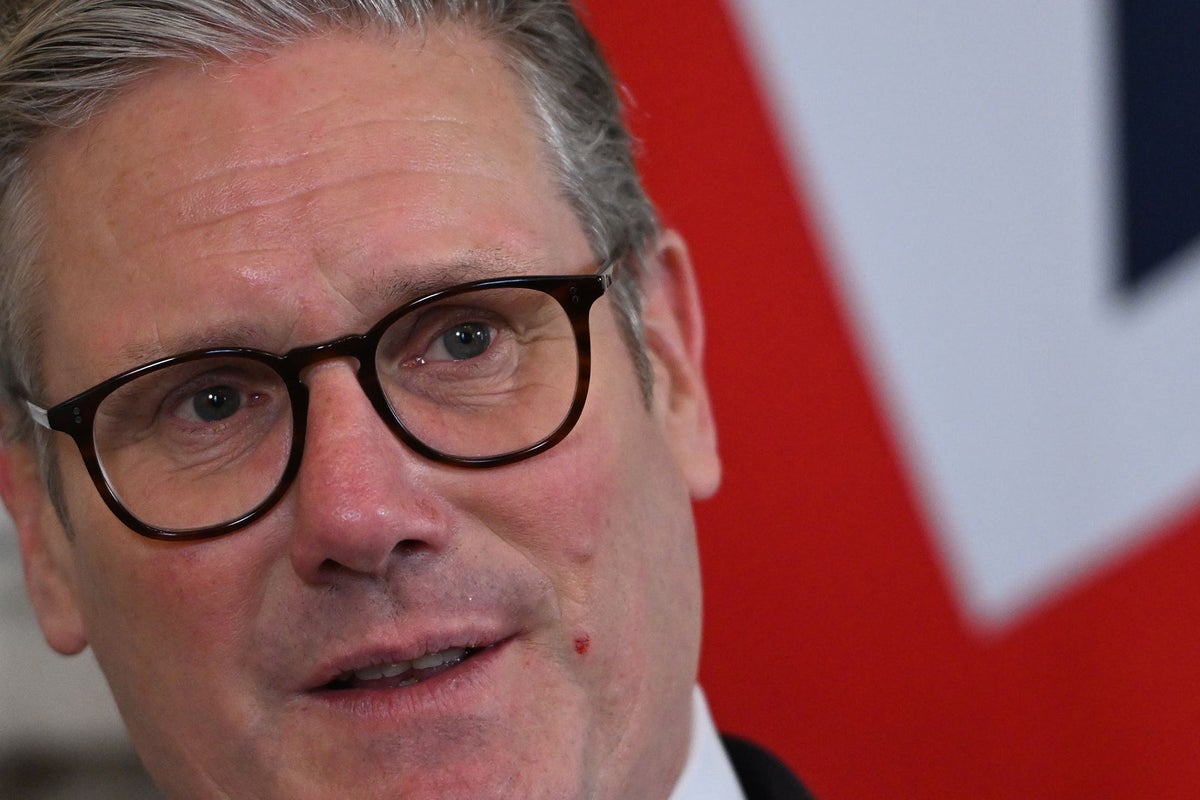
Sir Keir Starmer has said he is “determined to back British brilliance” as he promised “bold changes” to the rules around electric cars in the wake of US President Donald Trump’s tariffs.
The Prime Minister has pledged to help “ensure home-grown firms can export British cars”, as officials announced a series of measures to support companies, while he said that the new global context has forced the Government to go “further and faster” on the economy.
Businesses are grappling with the new rules from the White House, which mean a 25% tariff is now applied to foreign cars imported into the US, while other products face a 10% levy.
Jaguar Land Rover said over the weekend that they would “pause” shipments to the US, as they look to “address the new trading terms”.
Sir Keir has said that “global trade is being transformed” and businesses need “a government that steps up”.
“That means action, not words,” he added. “So today I am announcing bold changes to the way we support our car industry.
“This will help ensure home-grown firms can export British cars built by British workers around the world, and the industry can look forward with confidence, as well as back with pride.”
As part of Monday’s announcement, Sir Keir will officially reinstate the 2030 ban on the sale of new petrol and diesel cars. Regulations around manufacturing targets on electric cars and vans will also be altered, to help firms in the transition, and new hybrids will be on the market for another five years.
Luxury supercar firms such as Aston Martin and McLaren will still be allowed to keep producing petrol cars beyond the 2030 date, because they only manufacture a small number of vehicles per year.
Hybrids and plug-in hybrid cars will also be allowed to be sold until 2035.
Petrol and diesel vans will be able to be sold until 2035, as well as all hybrid models.
The Government is also going to make it easier for manufacturers who do not comply with Government-mandated sales targets to avoid fines, and the levies will also be reduced.
Officials have said that support for the car industry will continue to be kept under review as the full impact of the tariffs announced last week becomes clear.
A series of interventions from the Government are expected this week, and it is thought that elements of the industrial strategy could be brought forward, having been expected this summer, in response to the announcements from the US in recent days.
Writing in the Sunday Telegraph, the Prime Minister has said that the Government is “ready to use industrial policy” to help shelter businesses from the fallout from the tariffs, while “the world as we know it has gone” in terms of the economy.
“This week, the Government will do everything necessary to protect Britain’s national interest,” Sir Keir wrote.
“Because when global economic sands are shifting, our laser focus on delivering for Britain will not, and these new times demand a new mentality.”
Labour pledged in their election manifesto to restore the 2030 date, after it had been rolled back to 2035 by Rishi Sunak’s Conservative government.
Transport Secretary Heidi Alexander said the industry deserves “clarity” in the economic context.
She said: “Our ambitious package of strengthening reforms will protect and create jobs, making the UK a global automotive leader in the switch to EVs, all the while meeting our core manifesto commitment to phase out petrol and diesel vehicles by 2030.”
The Prime Minister spent the weekend in calls with foreign leaders about the tariffs, after he promised to do “everything necessary” to protect Britain’s national interest.
After calls with the leaders of France, Italy and Australia in recent days, Sir Keir used conversations with European Commission president Ursula von der Leyen, German Chancellor Olaf Scholz and leader of the German Christian Democratic Union party Friedrich Merz, to reiterate his disappointment at the measures announced by the White House.
Germany is one of the countries due to face higher tariffs in the coming days, as the EU has been hit with a 20% rate.
Motoring industry body the Society of Motor Manufacturers and Traders (SMMT) has said that “greater action will almost certainly be needed” to safeguard manufacturers, given the tariff changes.
Chief executive Mike Hawes said that “given the potentially severe headwinds facing manufacturers following the introduction of US tariffs, greater action will almost certainly be needed to safeguard our industry’s competitiveness.
“UK-US negotiations must continue at pace, while the long-awaited industrial and trade strategies should prioritise automotive and be delivered at speed.”
The Conservatives have accused the Government of “firing on half cylinders” when support for car makers needs a “full throttle”.
Shadow business secretary Andrew Griffith said: “After nearly a year, Labour’s industrial strategy remains stuck on the grid and the Business Secretary and Chancellor are busy undermining competitiveness in the form of higher taxes and new employment red tape.”
Meanwhile the Liberal Democrats have said that the moves on their own “won’t be enough to protect the sector from the impact of Trump’s damaging taxes”.
Transport spokesperson Paul Kohler said “ministers should also be exploring better incentives for consumers to buy electric vehicles including VAT cuts for public charging and postponing the planned increase in vehicle tax on electric cars.”
Starmer wants Britain at front of electric car ‘revolution’ as reforms unveiled
Edinburgh University staff to vote on industrial action in dispute over cuts
Globalisation has come to an end, says minister
Keir Starmer to give more details on economic support in wake of US tariffs
FTSE set for another dismal day after Asian stocks rout
Banknote printer De La Rue to complete £300 million partial sale in May







